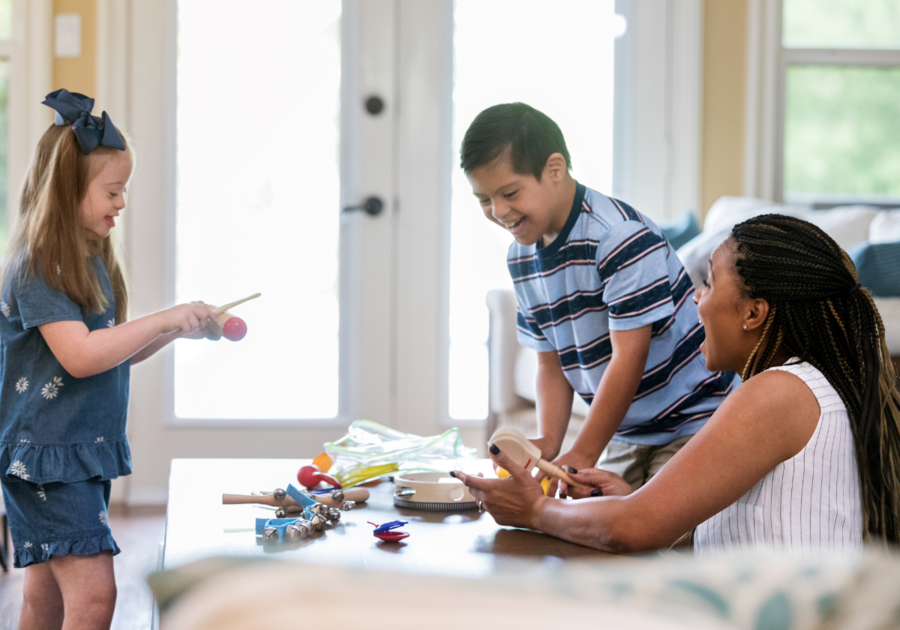When a child has a special-needs diagnosis or has significant medical challenges, or a combination of both, there is a substantial amount of focus by service providers, specialists, medical and educational staff on meeting the needs of that child and their parent(s) or caregiver(s). Oftentimes, the needs of any siblings in the home can go unnoticed. This oversight is rarely intentional, but awareness is key.
Siblings in these situations can become a Glass Child. When looking at the word glass in conjunction with the word child, the first thing that typically comes to mind is the perception that the child is fragile. According to a research article by Hanvey, Malovic and Ntontis, “Siblings of disabled or chronically ill children are often hidden family members and their needs for support might not be met” (Hanvey et al., 2022, p. 936). Therefore, the term Glass Child infers that people tend to look through the typically functioning child as if looking through glass and they focus solely on meeting the needs of the parent(s) and the child with special needs or medical challenges and not on the needs of the sibling(s).
What can parents do to address this? From my own perspective of having raised two children, one of whom had significant and rare medical conditions from birth through the teenage years, and the other one who has autism, it is imperative that EVERY child feels that they matter. Children should also have the self-confidence to believe that they are capable of accomplishing anything that they set their minds to.
Every child benefits from developing the life skills that they need to thrive and survive. Children should be encouraged to participate in all family activities to the best of their ability, even when it comes to household chores. This includes the child with a special needs diagnosis or medical challenges. Just be mindful of what they are developmentally and physically capable of doing. Having a child with special needs/medical challenges do something as simple as folding towels or putting napkins on the table for mealtime can have a huge impact on sibling dynamics. How so? The typically functioning sibling will see that action as “more fair”, and that the child with special needs/medical challenges is not getting out of helping with chores. Teaching EVERY child in your family the life skills that help build independence and confidence is one of the best gifts that you can give them.
Another important suggestion is to encourage your typically functioning child to develop their own interests, such as playing sports, playing a musical instrument, creative art, martial arts, dance, etc. The same advice applies to the child with special needs/medical challenges. Be careful, however, that you do not overcommit to after-school activities as you may already have a lot going on with work, school meetings,therapy and medical appointments. One activity per child is much more manageable.
We should also ensure that children who have a sibling with special needs/medical challenges have their own identities. They need to have an identity that is separate from being the sibling of a child with special needs/medical challenges. They need to spend time with friends, and they need one-on-one time with their parents. They also need to develop a positive relationship with their siblings. Chances are, typically functioning siblings will one day take on the role of caretaker in one form or another.
Finally, we all know that raising a child with special needs/medical challenges is a difficult journey. It is important that you build a support system and that you ask for
help. Look into community resources and explore ways to help reduce your stress. Family Wellness Roanoke has many resources listed for parents on their website-
www.fwroanoke.org. Self-care is not selfish. Self-care is paramount to your being the best and happiest person that you can be. Your children learn from watching you, and tending to your own self-care is a great life skill to teach them.
Learn more about Family Wellness Roanoke
Reference
Hanvey, I., Malovic, A., & Ntontis, E. (2022). Glass children: The lived experiences of siblings of people with a disability or chronic illness. Journal of Community
& Applied Social Psychology, 32(5), 936–948. https://doi.org/10.1002/casp.2602



